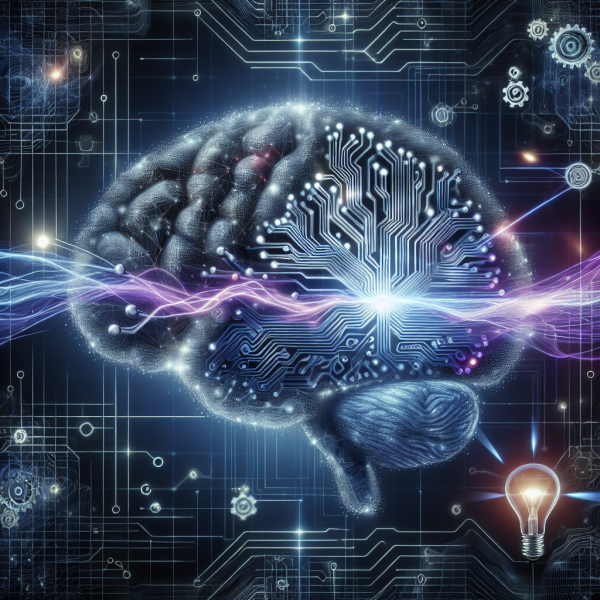The Rise of Quantum Computing: How It Will Transform Data Processing and Security

Quantum computing stands at the forefront of technological advancements, poised to revolutionize how we process data and secure information. Unlike classical computers, which use bits as their fundamental unit of information (represented as either a 0 or a 1), quantum computers leverage the principles of quantum mechanics to operate using qubits. These qubits can represent and process a vast amount of information simultaneously, leading to the potential for exponential increases in computational power. As the field matures, the implications of quantum computing on data processing and security promise to be profound.
The Fundamentals of Quantum Computing
At its core, quantum computing manipulates the peculiar properties of quantum mechanics, such as superposition and entanglement. Superposition allows qubits to exist in multiple states at once, enabling quantum computers to perform multiple calculations simultaneously. Entanglement, on the other hand, creates a unique correlation between qubits, meaning the state of one qubit can depend on the state of another, regardless of distance. These properties can be harnessed to solve complex problems more efficiently than classical systems, opening up new avenues for research and application across various fields.
Transformation in Data Processing
1. Accelerating Algorithms
Quantum computers can dramatically accelerate certain algorithms that underpin data processing tasks. For example, Grover’s algorithm offers a quadratic speedup for unstructured search problems, reducing the time it takes to search through unsorted databases. Similarly, Shor’s algorithm can factor large integers exponentially faster than the best-known classical algorithms, which has significant implications for cryptography.
These advancements position quantum computing as a powerful tool in fields ranging from drug discovery and materials science to climate modeling and artificial intelligence. By enabling researchers to process and analyze vast datasets more rapidly, quantum computing can expedite breakthroughs in these critical areas, leading to innovations that were previously thought unattainable.
2. Enhanced Machine Learning
As machine learning continues to reshape industries, quantum computing is set to enhance its capabilities. Quantum algorithms can potentially optimize machine learning models, speeding up training times and improving predictive accuracy. This could revolutionize industries like finance, healthcare, and marketing, where complex and timely analyses are crucial for decision-making. The ability to process large datasets in new ways could lead to more sophisticated models that better understand patterns and correlations.
A New Era in Data Security
As we embrace the potential of quantum computing, we must also confront the challenges it poses to data security. The algorithms that currently protect our sensitive data, particularly public-key cryptographic systems like RSA and ECC, are vulnerable to quantum attacks. Shor’s algorithm could render these systems obsolete, making it essential for organizations to preemptively adapt their security measures.
1. The Quantum Threat to Encryption
The potential for quantum computers to break traditional encryption methods has sparked growing concern among cybersecurity experts. As quantum computing technology advances, the risk of data breaches and cyberattacks increases. Governments and corporations are investing heavily in post-quantum cryptography—algorithms designed to secure data against quantum threats. These new cryptographic methods will be fundamental in protecting sensitive information and ensuring the integrity of communication as we transition to a quantum future.
2. Quantum Key Distribution (QKD)
In response to the security challenges posed by quantum computing, innovative solutions such as Quantum Key Distribution (QKD) are being developed. QKD uses the principles of quantum mechanics to create secure communication channels that are theoretically invulnerable to eavesdropping. The unique nature of quantum states means that any attempt to intercept the key during transmission will disturb the system, alerting the parties involved to the presence of an intruder. As organizations look to future-proof their data security, QKD may become an essential component of their cybersecurity strategy.
Conclusion
The rise of quantum computing is ushering in a new age where data processing capabilities and security measures will fundamentally change. By harnessing the principles of quantum mechanics, we can expect accelerated advancements in various fields, driving innovation and improving our ability to solve complex problems. At the same time, the challenges posed by quantum threats necessitate a proactive approach to cybersecurity, paving the way for new and robust cryptographic solutions.
As we stand on the brink of this technological revolution, the journey towards a quantum-enabled future promises to be as transformative as it is challenging, with far-reaching implications for society across the globe. Embracing these changes and adapting to them will be critical for individuals, businesses, and governments alike as we navigate the uncertain waters of the quantum era.














